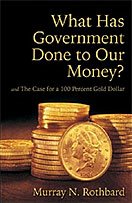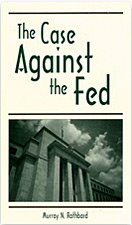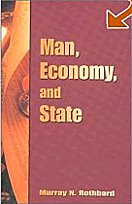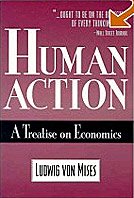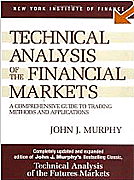Professor Fekete: Is There Life After Sudden Death of the International Banking System?
Is There Life After Sudden Death of the International Banking System?

Dr. Antal Fekete
Banking systems have been wiped out before under both deflationary and hyper-inflationary conditions. But there were always at least some banks that survived the cataclysm, namely, banks of countries that have stayed the course of financial rectitude and did not listen to the siren song of zero interest and perpetual debt. Countries that continued to observe the sanctity of contracts anchored in gold. Today the entire world entrusted its fortunes to the dinghy of global fiat money. If the dinghy is smashed to pieces on the reefs, not a single bank will survive.
Under these circumstances detractors of the RBD will discover that the singing the praise of "100 percent reserve" will bring no comfort. It will not save the skin of their pet banks. They will not be trusted any more than the fractional reserve banks, so called, will. The RBD, nothing less, will have to come to the rescue and make the survival of people possible.
I have never been able to persuade my detractors to debate my theory on the sole reasonable premise that the merits or demerits of the RBD can only be assessed in a context where banks are completely absent. Ludwig von Mises described such a scenario prevailing in Lancashire before the Bank of England opened its branch office in the city of Manchester. The absence of banks did not frustrate the growth and flourishing of the wool trade, the staple industry of the region at the time. Weaver-on-clothier bills, spinner-on-weaver bills, woolman-on-spinner bills circulated as cash in the local economy. The absence of banks could hardly be a handicap in any vibrant community eager to make most of its endowment and potential. It wasn't in Lancashire.
I have lived in Newfoundland for forty years and had the opportunity to study the monetary conditions in the "outports", as the isolated small fishing villages scattered along the rugged coastline are known where boats carrying fresh supplies and buying up the catch call only a couple of times a year. People in the outports had no use for the word "bank": they have never heard of, much less seen one. Pre-confederation Newfoundland was a dominion of Britain (same as Canada) with its gold and silver coinage. Among others, they had the distinctive $2 gold and 5¢ silver piece. There was a perennial shortage of coins. The shortage did not rule out trade. People wanted to eat, get clad, shod, and keep themselves warm in winter. Coin circulation was substituted by real bill circulation. Unlike on the continent, in the outports real bills were of small denomination. They were not called real bills either. They were called "chits" drawn by the fishermen on the local fish processor when they delivered their catch on the wharf. Chits would circulate from hand to hand. You could buy supplies from the local store against payment in chits. You could pay for the repair of your nets, and the lumberman was happy to supply you with firewood if you offered him chits in payment. Maturity date on the chits was dove-tailed with the arrival of the next cargo boat bringing in fresh supplies. The captain of the boat would pay in gold and silver coins for the catch, so the fish processor could meet the demand for coins when redeeming his chits.
My detractors theorize that prices would be lower in the absence of real bills circulation. They conclude that clearing devices are inflationary as they "reduce the demand for gold". This theorizing is just as idle as trying to find out how much carting would cost if the carter shunned the cart and started carrying heavy loads on his own back once more. Guess what: this question could never be answered. No carter would undertake carting on his own back after the wheel has been invented! Likewise, real bills would step into the shoes of money whenever gold coins were in short supply. Like it or hate it: the wheel has been invented.
The debate on the RBD is dismally lowbrow. It uses terms totally inappropriate in the present situation, such as supply of and demand for gold, the equilibrium price of gold, and the like. Participants of the debate are utterly unprepared for the event when all offers to sell gold against irredeemable paper currency are abruptly and simultaneously withdrawn. To deal with the present financial crisis and its aftermath we have to develop the prerequisite linguistic tools. In this effort Carl Menger's work is the only help we have. Menger had no use for the language of equilibrium analysis. According to him what makes gold special among marketable goods is its unsurpassed liquidity. This means that the spread between the asked and bid price of gold increases more slowly than that of any other marketable good, as ever larger quantities are thrown on the market. This is the property that makes gold superbly qualified to play the role of the ultimate extinguisher of debt: the asset into which all credit instruments must mature if the credit system is to last.
In a sense credit can still be said to mature into gold, albeit at a variable price. But if the gold basis goes negative and stays negative, in other words permanent backwardation of gold strikes, it will herald the advent of Armageddon. The overwhelming majority of working economists don't see that gold still plays an indispensable role in the credit system. The U.S. Treasury bond market has a sine qua non adjunct in the gold futures market. Without it bonds would be irredeemable: they would be promises maturing into more promises. But once permanent gold backwardation strikes, the prop of gold futures is removed, and the U.S. Treasury bond market will succumb to the sudden death syndrome. For the time being it is supported by speculative demand, but the demise of the gold futures market will make the bond speculators scurry for cover.
As long as confidence in the monetary system is unimpaired, gold will be widely available and the credit system will work properly. Increasing unavailability of gold indicates the threat of a breakdown of the credit system. Gold is going into hiding. Watch for the day when it will not be for sale at any price. When this happens, the credit system and along with it trade will collapse. It is not a matter of equilibrium or the lack of it. It is a matter of life or sudden death.
Detractors of the RBD do a great disservice to society when they try to force their narrow parochial and cultist viewpoint, the quantity theory of money and the supply/demand equilibrium theory of price, on everybody at a time when the problem is the relentless drying-up of liquidity. What we need is a theory of hoarding to supplement the theory of marketability. The theory of interest describes how gold is exempted in part from serving as a medium for saving. There is a complementary theory: that of discount, describing how gold is exempted in part from serving as a medium of exchange. That economy is best where gold is hoarded least. In such an economy gold is not needed in the cash balances of traders and, for that reason, is widely available to serve as the ultimate extinguisher of debt.
Time has long since passed when bickering about the number of angels that can simultaneously dance on the point of a needle has added anything material to our knowledge. Fractional reserve banking is a red herring. Tinkering at the edges with 100 percent reserve requirements leads nowhere. You will never understand RBD if you try to approach it through abuses of banks. What needs to be explained is why real bills can circulate on their own wings and under their own steam — banks or no banks.
Real bill circulation will start spontaneously after the total prostration of the world's banking system. Yes, there is life after the sudden death of the banking system. People are not going to commit collective suicide at the altar of fiat currencies. People want to live. They will use whatever little gold is available to them to trade by drawing real bills against the production and distribution of goods they want to consume. It will be a repetition of the miracle at the end of the Middle Ages, when the bill of exchange was invented in Italian city-states such as Florence, Venice and Genoa. It will happen again. The world will do very well with real bills and without banks, thank you very much.
When contract law will once again reach the level of highest respect, and promises to pay gold can once again be believed, banks may once again be in vogue. When that day dawns, the best earning assets of the new banks will be real bills drawn on consumer goods in most urgent demand maturing into gold coins. The criterion by which banks are judged is not going to be the prohibition against less than 100 percent gold reserves. It will be the prohibition against borrowing short in order to lend long.
Labels: Antal Fekete, gold, gold standard















![[Most Recent Quotes from www.kitco.com] [Most Recent Quotes from www.kitco.com]](http://www.kitco.com/images/live/t24_au_en_usoz_6.gif)
![[Most Recent Quotes from www.kitco.com] [Most Recent Quotes from www.kitco.com]](http://www.kitco.com/images/live/au_go_0030_ny.gif)
![[Most Recent Quotes from www.kitco.com] [Most Recent Quotes from www.kitco.com]](http://www.kitco.com/images/live/au_go_0365_ny.gif)
![[Most Recent Quotes from www.kitco.com] [Most Recent Quotes from www.kitco.com]](http://kitconet.com/charts/metals/silver/t24_ag_en_usoz_4.gif)




